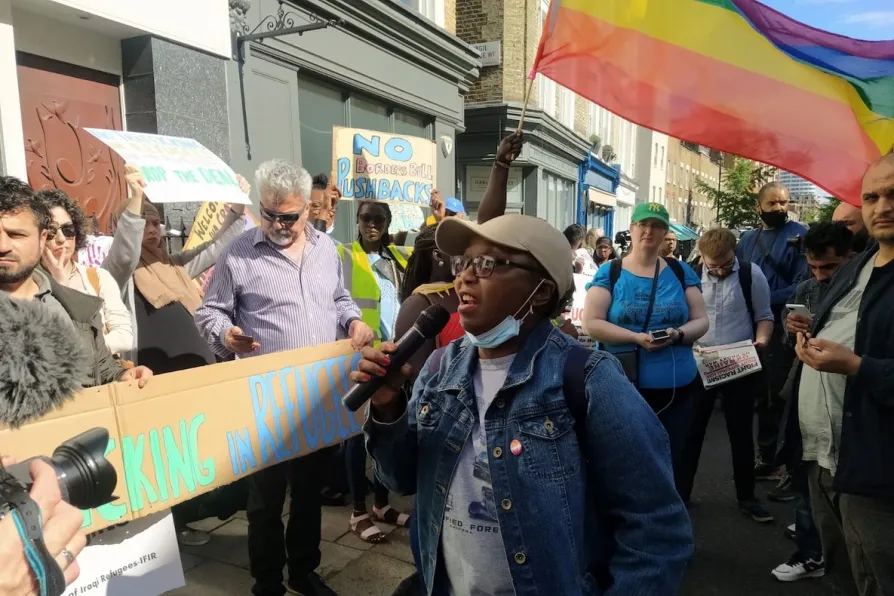
 Dozens of people gathered outside the Rwandan high commission in Marylebone in west London.
Dozens of people gathered outside the Rwandan high commission in Marylebone in west London.
PRESSURE is building on Priti Patel to drop plans to send asylum-seekers to Rwanda after campaigners lodged a legal challenge against the policy in the High Court today.
The emergency proceedings, launched by Duncan Lewis Solicitors on behalf of charities Care4Calais and Detention Action, civil servants’ union PSC and four people facing deportation to Rwanda, is the first legal challenge of the policy to be put before the courts.
Lawyers argue the policy is unlawful and will challenge whether the Home Secretary has the right to carry out the plans, the rationality of her conclusion that Rwanda is generally a “safe third country” and the adequacy of provision for malaria prevention.

Britain’s proud asylum history, from sheltering the Kindertransport escaping Hitler to Basque children fleeing fascist Spain, required tireless campaigning against persistent opposition — and it’s up to all of us to do our part today, writes SABINA PRICE

Secret consultation documents finally released after the Morning Star’s two-year freedom of information battle show the Home Office misrepresented public opinion, claiming support for policies that most respondents actually strongly criticised as dangerous and unfair, writes SOLOMON HUGHES












